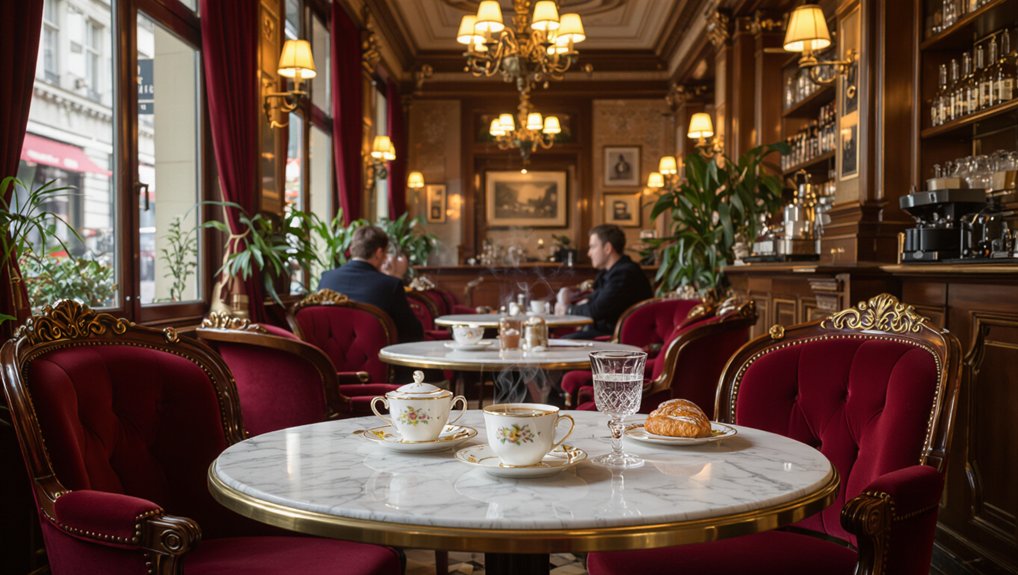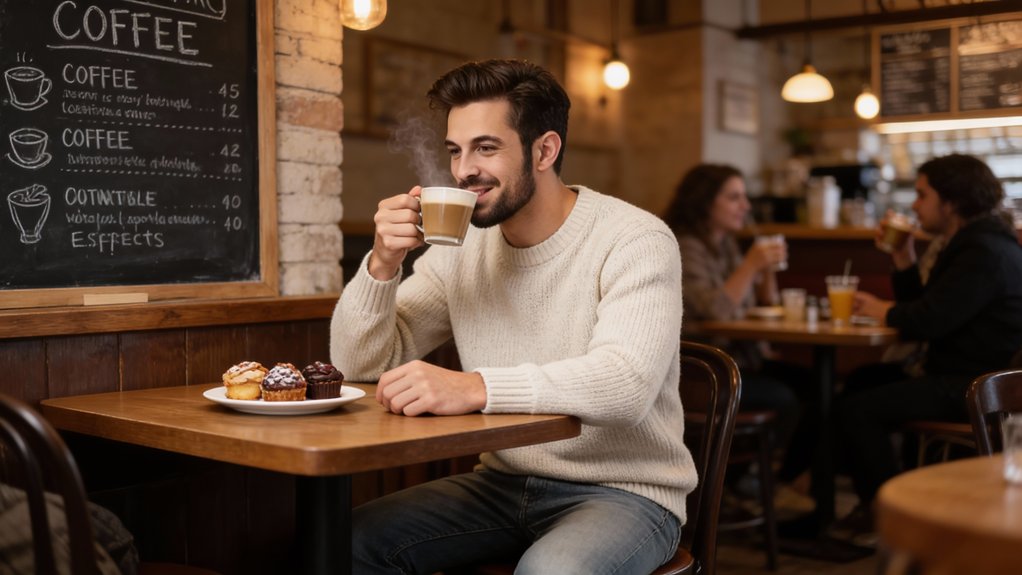Why do Viennese coffee houses feel so different from regular cafés around the world? If you’ve ever wondered what makes these establishments so culturally significant, you’re not alone. Many travelers and coffee enthusiasts find themselves drawn to Vienna’s coffee scene without fully understanding the deep-rooted traditions that make these spaces truly special.
Viennese coffee house culture represents far more than exceptional coffee-it’s a UNESCO-recognized cultural heritage that has shaped social interaction, intellectual discourse, and artistic expression for over 300 years. These establishments serve as living museums where time moves differently, conversations deepen naturally, and every visit connects you to centuries of European history.
In this post, we’ll explore the fascinating origins of Viennese coffee houses, uncover the unique rituals and customs that define the experience, and discover why these cultural institutions continue to thrive in our modern world. You’ll learn what makes the atmosphere so captivating and how to fully appreciate this remarkable tradition during your next visit.
Table of Contents
Historical Origins of Viennese Coffee Houses
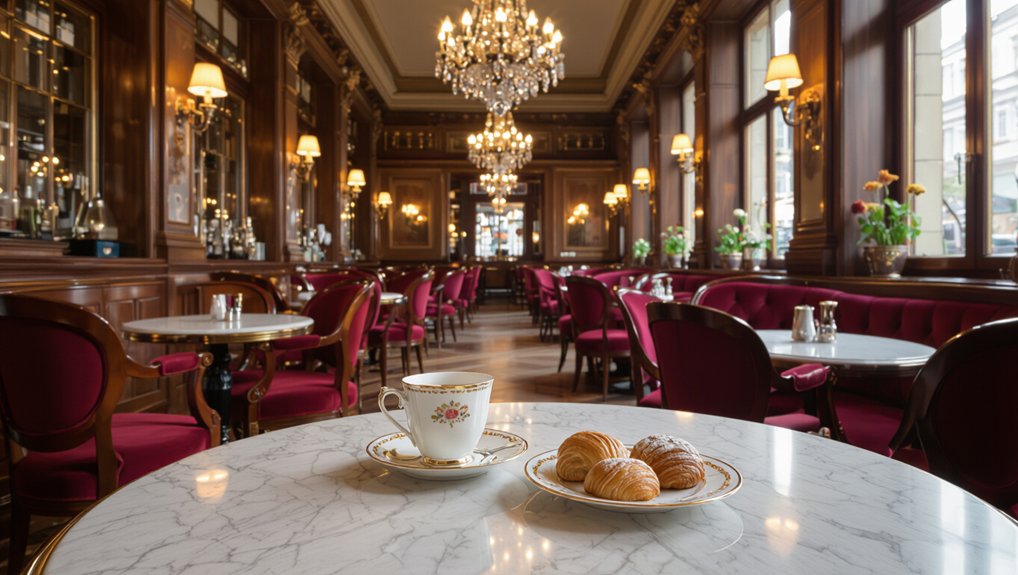
When the Siege of Vienna ended in 1683, little did anyone know that a remarkable coffee culture was about to take root in the heart of the Habsburg Empire.
An Armenian spy named Deodato and Polish soldiers discovered coffee beans, leading to the first coffee house, Hof zur Blauen Flasche, in 1685.
Georg Franz Kolschitzky secured the first official coffee serving license, paving the way for Viennese coffee houses.
Despite challenges like Napoleon’s Continental Blockade, which drove up coffee prices, these establishments became cultural hubs, transforming how people gathered and socialized over a steaming cup of brew.
Architectural and Social Atmosphere
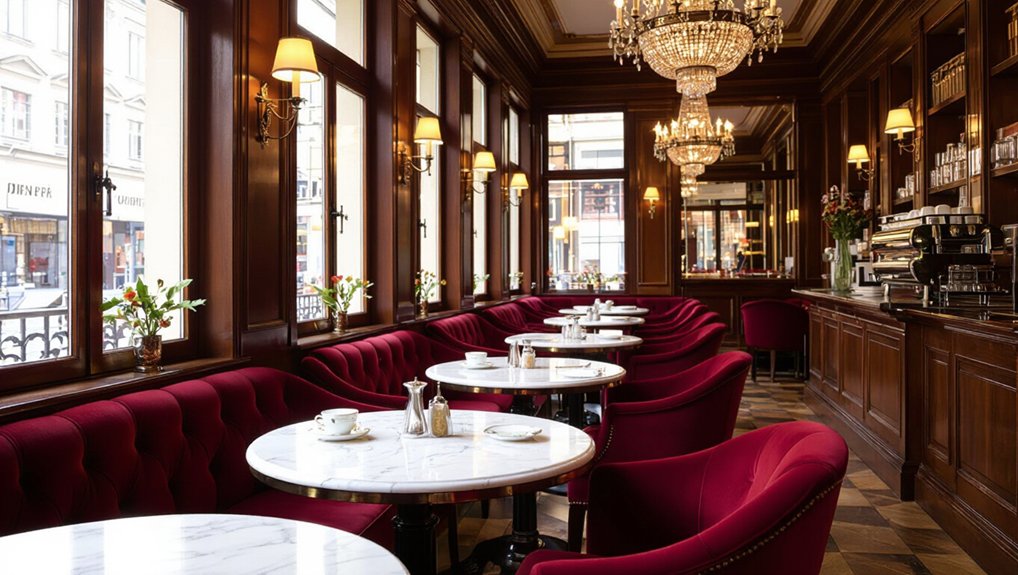
Stepping into a traditional Viennese coffee house transports you to a world where architectural elegance and social connection intertwine seamlessly.
The interior design details reveal a stunning cultural landscape-marble-topped tables, iconic Thonet chairs, and carefully curated newspaper tables create a special atmosphere that’s quintessentially Viennese.
These coffee houses aren’t just dining spaces; they’re vibrant cultural hubs where conversations flow as smoothly as the carefully brewed coffee.
Patrons can linger for hours, reading, discussing, and experiencing a social environment that transforms simple coffee consumption into a rich, meaningful ritual of community and connection.
Culinary Traditions and Coffee Varieties
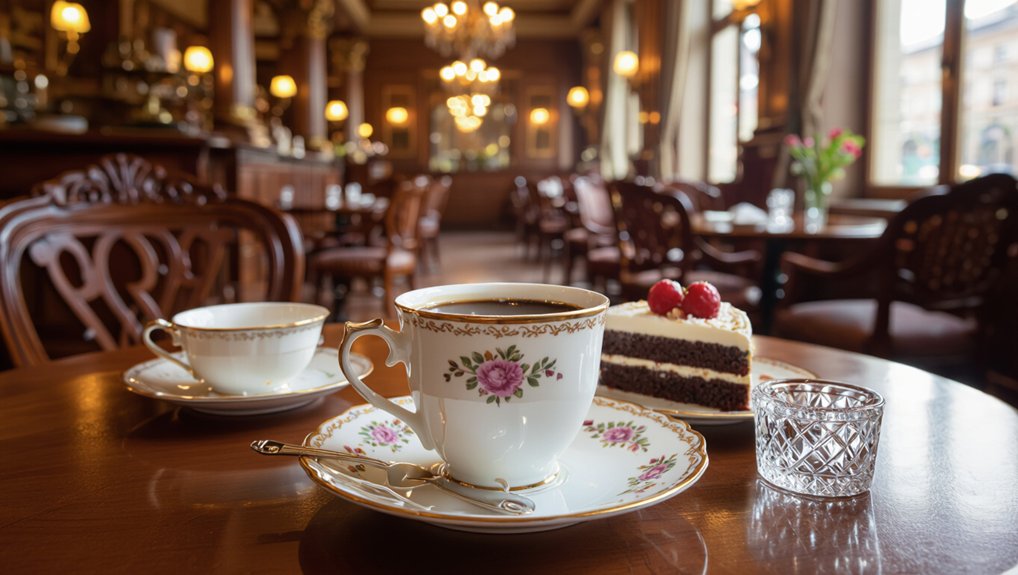
Because Vienna’s coffee culture transcends mere beverage consumption, its culinary traditions represent a delightful symphony of flavors, techniques, and historical significance.
In a traditional Viennese coffee house, you’ll discover unique varieties like Wiener Melange and Franziskaner, each telling a story of rich culinary heritage. Every order comes with a complimentary glass of water-a signature touch balancing hydration and taste.
Seasonal specialties and classic pastries like Apfelstrudel and Sachertorte elevate the experience, transforming coffee drinking into an art form. These traditions aren’t just about drinks; they’re a cultural celebration of craftsmanship and sensory pleasure.
Literary and Cultural Significance
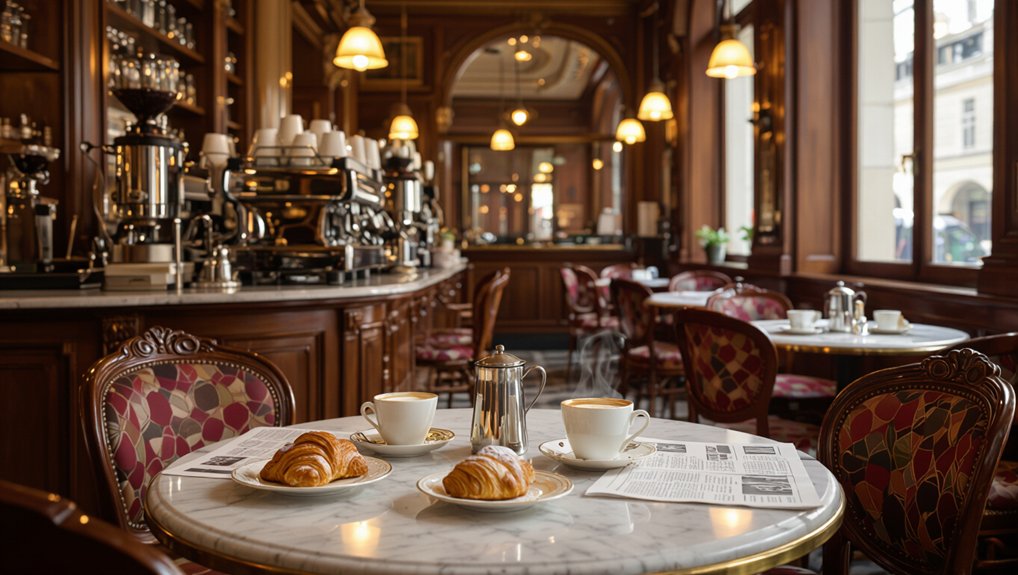
A literary sanctuary pulsing with intellectual energy, Vienna’s coffee houses transcended their role as mere refreshment stops, emerging as vibrant cultural epicenters where creativity and conversation intertwined. These first cultural hubs nurtured intellectual discourse among literary figures like Karl Kraus and Peter Altenberg.
| Literary Group | Notable Cafe |
|---|---|
| Jung Wien | Café Griensteidl |
| Intellectuals | Various Venues |
UNESCO recognized these spaces as Intangible Cultural Heritage, celebrating how each coffee house in Vienna became a crucible of artistic expression. Writers, philosophers, and artists gathered, transforming these spaces into dynamic platforms for exchanging revolutionary ideas that would shape modern thought.
Modern Evolution and Global Influence
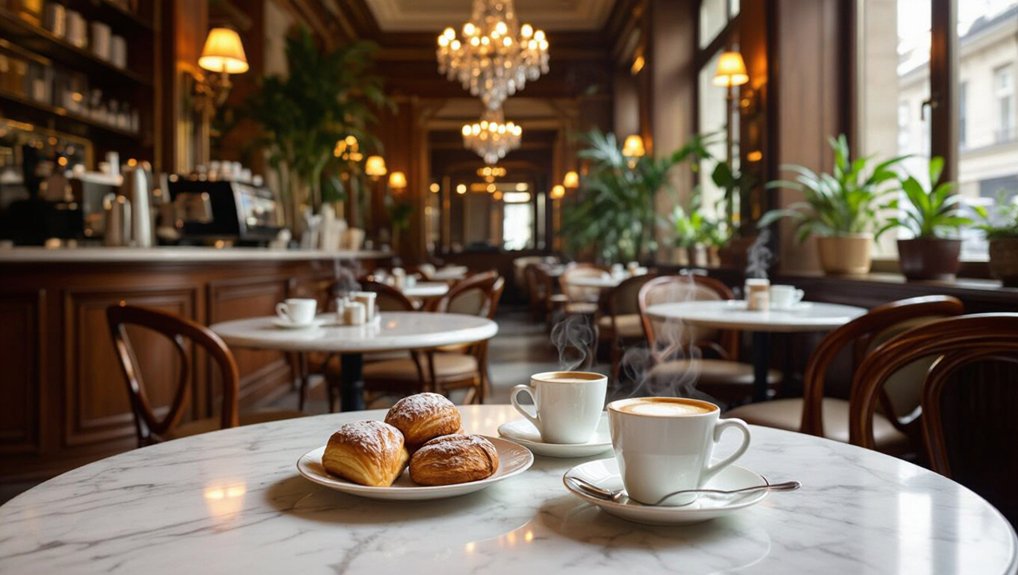
While traditional Viennese coffee houses might’ve seemed frozen in time, they’ve dynamically reimagined themselves for the 21st century, proving that cultural institutions can beautifully evolve without losing their soul.
Vienna’s coffee culture has impressively adapted, with UNESCO recognizing its cultural heritage in 2011.
Key transformations include:
- Integrating modern elements into historic spaces
- Attracting global coffee enthusiasts
- Preserving traditional coffee house experiences
The global influence of these contemporary venues has sparked international interest, inspiring similar coffee houses worldwide.
Traditional coffee houses now seamlessly blend historical charm with current trends, ensuring Vienna’s unique coffee culture continues to thrive and captivate new generations of coffee lovers.
Frequently Asked Questions
What Is the Tradition of the Vienna Coffee House?
I’ll invite you into Vienna’s coffee houses, where time slows down, conversations bloom, and intellectual life thrives-a cherished tradition where coffee isn’t just a drink, but a leisurely cultural experience that connects people through shared moments.
What Is the Traditional Viennese Coffee?
I’ll savor a Wiener Melange, a classic espresso blended with steamed milk, or perhaps an Einspänner topped with luxurious whipped cream. These aren’t just drinks; they’re Vienna’s cherished coffee traditions, expertly crafted and deeply rooted in local culture.
What Is the Cultural Relevance of Coffee Houses?
I’ve witnessed how coffee houses aren’t just cafés, but living spaces of intellectual exchange. They’re cultural sanctuaries where ideas are born, conversations spark innovation, and our city’s deepest dialogues unfold beyond mere coffee consumption.
Which Country Is Home to the City of Vienna Known for Its Coffee House Culture and Pastries?
Austria is my home, and Vienna is its capital, where coffee house culture thrives. I’m proud of our elegant cafés, rich traditions, and delectable pastries that have defined our social and cultural landscape for centuries.
In Conclusion
Vienna’s coffee houses aren’t just cafés-they’re living museums of culture. I’ve explored how these historic spaces transcend mere coffee consumption, becoming intellectual sanctuaries where art, conversation, and tradition converge. From marble-topped tables to legendary pastries, these establishments represent more than a beverage-they’re a testament to Austrian heritage. As global coffee culture evolves, Vienna’s timeless coffee houses continue to inspire and enchant, bridging centuries of social and culinary innovation.

